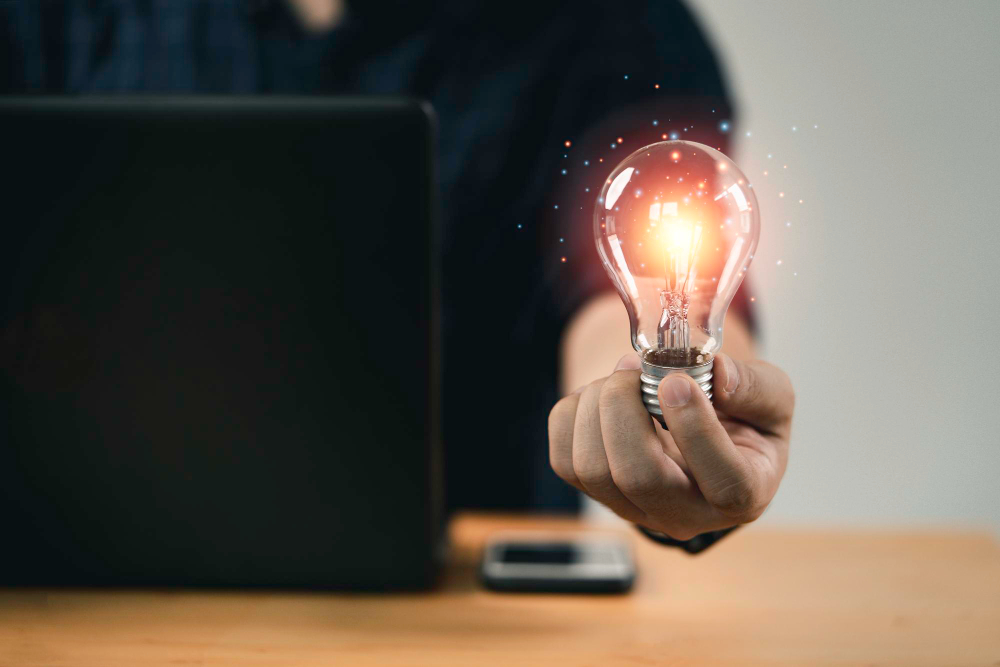Effective Learning: What It Is and Why You Should Start Practicing It
22.11.2024

Photo: Freepik.com
The ability to learn, connect new information with existing experiences, and identify patterns is crucial not only during school years but also throughout adult life. Research shows that learning in adulthood can enhance cognitive abilities such as memory, focus, and mental agility. Keep reading to discover what effective learning means and why it matters so much!
“Learning Effectively” – What Does It Mean?
Our brains are constantly active, especially during learning, exercising, watching movies, playing games, and even sleeping. Yes, brain activity continues even while we sleep.
Research shows that we can recall about 50% of newly acquired information within the first hour of learning, but only 30% after 24 hours. To achieve better results, specific learning strategies must be applied.
Effective learning is not just about memorizing information. It involves linking new knowledge to existing concepts and applying it in various contexts, including real-life situations, like daily work tasks. This approach fosters critical thinking and the ability to identify connections.
For learning to be truly effective, it should be purposeful and adapted to each individual’s unique learning style.
Why Adopt Principles of Effective Learning?
 Photo: Freepik.com
Photo: Freepik.com
Incorporating effective learning principles and methods into daily life provides several key benefits:
- Time-saving: By practicing effective learning techniques, you can acquire new knowledge and skills more thoroughly, reducing the need for repeated reviews.
- Deeper understanding: Effective learning helps retain new information for longer.
- Increased motivation: A meaningful and structured learning process is more enjoyable and productive.
- Achieving goals more efficiently: Individuals who use effective learning strategies tend to reach their objectives more successfully.
Tips for Practicing Effective Learning
- Set Clear Goals
To make learning as effective as possible, it’s crucial to set specific and realistic goals. For instance: “Learn a new programming language within three months.” Clearly defined objectives help track progress and provide satisfaction from accomplishments.
- Apply Active Learning
Active learning involves not just reading or listening but also practically applying acquired knowledge through discussions, tasks, simulations, and more.
- Review What You Have Learned
Repetition is the cornerstone of effective learning. Using techniques like spaced repetition—reviewing information at specific intervals—can greatly improve retention.
- Optimize Your Learning Environment
Your surroundings significantly affect focus and productivity. Choose a quiet space free from distractions to enhance concentration.
- Use Metacognotive Strategies
Metacognitive strategies improve learning efficiency by analyzing how you learn. Regularly evaluating your progress and identifying challenges can help refine your strategies for better results.
- Leverage Artificial Intelligence (AI) Tools
AI tools can simplify and enhance the learning process by creating personalized study plans, explaining complex concepts, generating interactive tasks, and even creating supplemental learning content.
Rest, Manage Your Mental Health, and Eat HealthilyLearning requires time and energy, so taking breaks is vital. Proper sleep and rest improve focus and reduce stress.
Brain function consumes approximately 20% of the body’s total energy. This means one-fifth of your diet fuels cognitive activity. Support your well-being by including:
- Fatty fish
- Berries
- Nuts and seeds
- Leafy greens
- Whole grains
- Eggs
- Dark chocolate.
Fascinating Facts About the Human Brain and Memory Capacity

Photo: Freepik.com
The human brain is an organ capable of perceiving, processing, and storing an incredible amount of information. For example, today’s most advanced hard drives can store up to 10,000 GB, which pales in comparison to the brain’s capacity.
Here are some astonishing facts*:
- The human brain’s memory capacity is about 2.5 million GB.
- Memory peaks between the ages of 20 and 30.
- The average number of thoughts per day is 70,000.
- Left-handed people tend to have better memories.
- In 2021, only 61 people worldwide were diagnosed with hyperthymesia, a rare ability to remember even the smallest details.
Source: https://www.crossrivertherapy.com/memory-capacity-of-human-brain.
Diverse Learning Opportunities for Adults
Here at BDA, everyone can enhance their knowledge and strengthen their digital skills by choosing from over 250 different learning programs. Our offerings range from basic computer skills to advanced training in programming, AI, cybersecurity, and more!
Effective learning is essential and beneficial at any age. However, choosing high-quality, engaging, and valuable courses is just as important. Invest in your growth and well-being.





